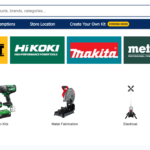If you’re looking to upgrade your heating system in the UK, getting an energy-efficient boiler installed is one of the best decisions you can make. Not only will it save you money on energy bills, but it will also reduce your carbon footprint and help protect the environment. Whether you’re replacing an old, inefficient model or simply want to ensure your home is heated in the most sustainable way, this guide will walk you through how to get an energy-efficient free boiler installed in your UK household.
Energy-Efficient Boilers
An energy-efficient boiler is one that uses less energy to heat your home, resulting in lower fuel bills and a reduced environmental impact. Modern boilers are designed with advanced technology to extract more heat from the fuel they burn, thus delivering more warmth for less energy. The most common types of energy-efficient boilers are:
- Combi Boilers: These are compact units that provide both heating and hot water on demand. They don’t require a water tank, making them a space-saving option.
- System Boilers: These require a hot water tank, but they are ideal for homes with multiple bathrooms and high hot water demand.
- Regular Boilers: Traditional boilers that heat water in a tank before it’s used. These are less common in modern homes but still efficient when installed properly.
Energy-efficient boilers are rated using the ErP (Energy-related Products) label, which categorizes the efficiency of the unit. The higher the efficiency rating, the more energy-efficient the boiler. A boiler with an efficiency rating of A or above is considered highly efficient.
Why Choose an Energy-Efficient Boiler?
- Lower Energy Bills: The primary reason to invest in an energy-efficient boiler is the potential savings. Old boilers are often inefficient and waste energy, resulting in higher heating bills. By upgrading to a modern energy-efficient model, you can save up to 30% on your annual heating costs.
- Environmental Benefits: By using less energy, energy-efficient boilers contribute to reducing greenhouse gas emissions. This is a simple way to lower your carbon footprint and help the UK meet its climate targets.
- Government Incentives and Grants: In the UK, there are various schemes available to help you get a free or subsidised energy-efficient boiler. These initiatives are part of the government’s ongoing efforts to reduce energy consumption and carbon emissions across the country.
- Improved Comfort: Modern boilers are designed to heat your home more evenly and efficiently, offering greater comfort throughout the winter months. Many energy-efficient models come with smart technology, allowing you to control your heating remotely via a smartphone app.
- Longer Lifespan: A newer, well-maintained energy-efficient boiler can last between 12 and 15 years, compared to older models that may only last a decade.
How to Get a Free Boiler Installation in the UK
If you’re wondering how to get a free boiler, there are several government-backed schemes in the UK that may help you cover the cost of installation. Here’s an overview of how to access these opportunities:
1. The Energy Company Obligation (ECO) Scheme
The Energy Company Obligation (ECO) is a government initiative aimed at helping lower-income households and those on certain benefits get energy-efficient home improvements, including boiler replacements. Under this scheme, eligible homeowners can receive a free boiler installation if they meet certain criteria.
Who is eligible for a free boiler under ECO?
To qualify for a free boiler under the ECO scheme, you need to meet certain criteria:
- You must receive one or more of the following benefits:
- Universal Credit
- Income-based Jobseeker’s Allowance (JSA)
- Income Support
- Pension Credit
- Child Tax Credit or Working Tax Credit
- Disability Living Allowance (DLA)
- Your household’s income must be below a specific threshold, which varies depending on where you live and other factors.
- Your boiler must be at least 7 years old and deemed inefficient by your energy supplier.
How to apply for a free boiler through ECO:
- Check your eligibility: You can use an online eligibility checker, or contact your energy supplier directly to see if you qualify.
- Get a survey: If you qualify, an energy assessor will typically visit your home to assess the current condition of your boiler and heating system.
- Boiler installation: Once your application is approved, a certified installer will come to your property to fit your new, energy-efficient boiler. The installation is typically covered under the ECO scheme, so you won’t need to pay for it upfront.
Keep in mind that while the government subsidises the cost of the boiler installation, you may still have to pay for additional work, such as plumbing or electrical upgrades, depending on the complexity of the installation.
2. The Warm Home Discount Scheme
The Warm Home Discount Scheme is another initiative that provides assistance to low-income households with energy costs. While this scheme is primarily aimed at helping with heating bills, some energy companies may offer free boiler installations to qualifying customers as part of their customer support services.
Who qualifies for the Warm Home Discount Scheme?
To qualify, you must meet certain criteria:
- You must be on a low income or receiving certain benefits.
- You may receive a direct discount on your electricity bill, or in some cases, an offer for a free boiler replacement as part of energy efficiency measures.
3. Local Authority Grants
Some local authorities in the UK offer grants or subsidies for energy-efficient home improvements, including boiler replacements. These grants may be available to households on low incomes, people with disabilities, and pensioners. It’s worth checking with your local council to see if there are any available programmes in your area.
4. Green Homes Grant Scheme (Limited Availability)
Though no longer available as a nationwide scheme, the Green Homes Grant was a government initiative that provided vouchers for home improvements, including boiler installations. The scheme allowed homeowners to receive funding for energy-efficient upgrades, including installing energy-efficient boilers.
While the scheme is no longer running, some local councils and energy suppliers may still offer funding or vouchers for energy-efficient home improvements. It’s worth researching or contacting local organisations to check for any available schemes.
Steps to Get an Energy-Efficient Boiler Installed
If you’re not eligible for a free boiler, or you want to explore other options, you can still get an energy-efficient boiler installed with a private payment plan. Here’s a step-by-step guide on how to get started:
1. Choose the Right Boiler
Not all boilers are created equal, so it’s important to choose one that suits your needs. Consider the size of your home, the number of bathrooms, and your hot water requirements when choosing a model. You can consult with a heating engineer who can recommend the best option for your household.
2. Get Several Quotes
To ensure you’re getting the best deal, request quotes from at least three reputable installers. This will allow you to compare prices, services, and warranties. Make sure to ask about the installation cost, as well as the boiler’s efficiency rating and warranty period.
3. Schedule the Installation
Once you’ve selected your boiler and installer, you can schedule an installation date. The process typically takes 1-2 days, depending on the complexity of the installation and whether any additional work is required, such as pipe or electrical work.
4. Prepare Your Home
Before the installation, ensure that the area around the boiler is clear and accessible. The installer will need space to work, so move any furniture or obstacles out of the way.
5. Post-Installation Service
After the boiler is installed, it’s important to have regular servicing to ensure it continues to run efficiently. Many installers offer maintenance packages, and it’s a good idea to schedule annual check-ups to keep the boiler in top condition.
Key Considerations Before Installation
- Boiler Efficiency: Check the ErP rating and choose a boiler with an A-rating for efficiency.
- Installer Certification: Ensure that your installer is Gas Safe registered (for gas boilers) or has the appropriate credentials for your chosen system.
- Fuel Type: Boilers can run on natural gas, oil, or electricity. Choose the type that suits your home’s existing system and fuel availability.
- Smart Features: Look for a boiler with smart controls that allow you to manage your heating system remotely.
Conclusion
Getting an energy-efficient boiler installed in your UK household is a great way to reduce your energy bills, lower your carbon footprint, and improve the comfort of your home. Thanks to government schemes like ECO, you might even be eligible for a free boiler installation, especially if you’re on a low income or receive certain benefits.
Take the time to research the best options for your home and explore available grants and incentives. Whether you opt for a free boiler through the ECO4 scheme or choose to finance a new system privately, upgrading to an energy-efficient boiler is a smart investment in your home’s future.
By following this guide, you’ll be on your way to enjoying a more energy-efficient and cost-effective heating system in no time.
For More Information Visit Timelymagazine








